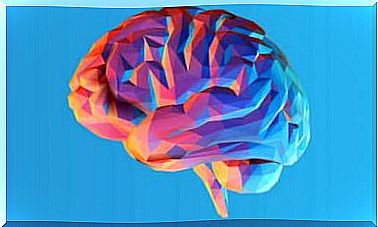Psychology Of Forgiveness: Detachment From Resentment To Move Forward

The psychology of forgiveness is also a form of detachment. It refers to a whole set of courageous attitudes by means of which to abandon the rancor that consumes us inside and of which we are prisoners, to accept what has happened and allow us to move forward.
It is also a restructuring of the ego, a psychological journey through which it is possible to heal wounds and negative emotions in order to find inner peace little by little and day after day.
The bibliography on the psychology of forgiveness consists mainly of writings and documents on personal growth, on the study of morality and even connected to the world of religion or spirituality. But then, are there scientific studies on forgiveness, on how to bring it to completion and on what it presupposes in order to achieve a physical and emotional balance?
The answer, obviously, is “yes”. In fact, the American Psychological Associaton has multiple works and researches on forgiveness and on how our societies and this world, characterized by a succession of countless conflicts throughout history, have not always been able to proceed in this direction: a dimension that , in turn, is the key to our mental well-being.
It is convenient to remember that surely many have one or more thorns in their side, an unfinished business with the past that weakens our present happiness, which diminishes the strength of our ability to build a much more satisfying present. We all, in some way, keep our small share of grudge towards something or someone that it would be necessary to begin to heal …

The psychology of forgiveness to avoid personal attrition
The best way to delve into the psychology of forgiveness is to define what is meant by forgiveness. Forgiving, in the first place, doesn’t mean telling us that what happened at a given moment was good if it didn’t. It does not even mean “accept”, nor reconcile us with the person who has hurt us; still less force us to feel closeness or pity for her.
The psychology of forgiveness actually offers us adequate strategies with which to be able to carry out the following steps:
- Accept that things turn out a certain way. Nothing that happened at a precise moment in our past can be changed. Therefore, we must stop making assumptions, wasting energy, good mood and health by imagining how things could have been if we had acted differently, if we had done this instead of that.
The psychology of forgiveness tells us in turn that we are not obliged to understand or accept the values or thoughts of those who have harmed us. Forgiveness is not about offering mercy, nor is it seeking justifications for suffering. We must never give up our dignity.
- Rather, it is a matter of smoothing out the conflict of resentment, of going to remove some layers of anger, some intensity of despair and this block that prevents us from breathing. For this, it is necessary to stop hating those who have hurt us.

On the other hand, there is an important aspect that we usually forget. Forgiveness is the cornerstone of any relationship, be it a couple, a friendship, etc. Let us remember that not everyone in the world sees things the same way we do; in fact, there are as many perceptions, approaches and opinions as there are days in a year.
Sometimes we take certain attitudes as taunts or acts of contempt when in reality it is a simple disagreement or misunderstanding. In order to stop seeing betrayals where there are none, we need to be able to broaden our sense of understanding and our capacity for forgiveness .
The psychology of forgiveness: the key to health
Dr. Bob Enright of the University of Wisconsin is one of the most renowned experts in the study of the psychology of forgiveness. After more than three decades dedicated to analyzing various cases, carrying out studies and writing books on the subject, he has drawn conclusions that may perhaps surprise us. Not all people succeed, we are not all capable of taking that step that leads to forgiveness. The reason for this is the belief that forgiveness is a form of weakness.
Is a mistake. One of the best ideas that the psychology of forgiveness gives us is that forgiving, taking this step, in addition to allowing us to move forward with greater freedom in our present, gives us the opportunity to integrate into our being new values and strategies to deal with any source. of stress and anxiety. Because forgiving and recycling resentments in total freedom is an act of strength and courage.

I l Doctor Enright also reminds us that there are many reasons that justify and support the pardon. The best of all is that we will gain health. There are many studies that show the close relationship between forgiveness and the reduction of anxiety, depression and other disorders that drastically reduce the quality of our life.
So let’s try to put into practice some of the following strategies to make the path of forgiveness easier:
- Forgiveness does not mean forgetting, it is learning to think better, understanding that we are not obliged to reconcile, but to accept what has been, without feeling “weak” for it. Forgiveness is getting rid of many burdens that we do not deserve to bear for life.
- Hating takes away our energy, enthusiasm and hope. We must learn to forgive in order to survive, to live with more dignity.
- Therapeutic writing, such as having a diary, can help us.
- We must understand that time itself does not help. Letting the days, months and years go by will not make us stop hating and will not make us forget what happened. Let’s not leave the annoyance we feel today to tomorrow.
- Forgiveness is a process. This is another thing we need to understand. We may not be able to completely forgive the other person, but we can discharge a good part of the resentment in order to be able to “breathe” a little better.
As we have seen, the scope of the psychology of forgiveness is very broad and has, in turn, a very close relationship with health and well-being. It is a discipline that offers us fantastic strategies that can be applied to any area of our life, our work and our daily relationships. Forgiveness is, therefore, one of the best skills and virtues to develop as a human being.
Bibliographical references
Worthington, T. y Williams, David R. (2015). Forgiveness and health: Scientific evidence and theories relating forgiveness to better health. New York / London: Springer.
Enright, RD, & Fitzgibbons, R. (2015). 9 Forgiveness Therapy. Amer Psychological
Worthington, EL, Jr., & Sandage, SJ (2015). Forgiveness and Spirituality in Psychotherapy: A Relational Approach. Amer Psychological









